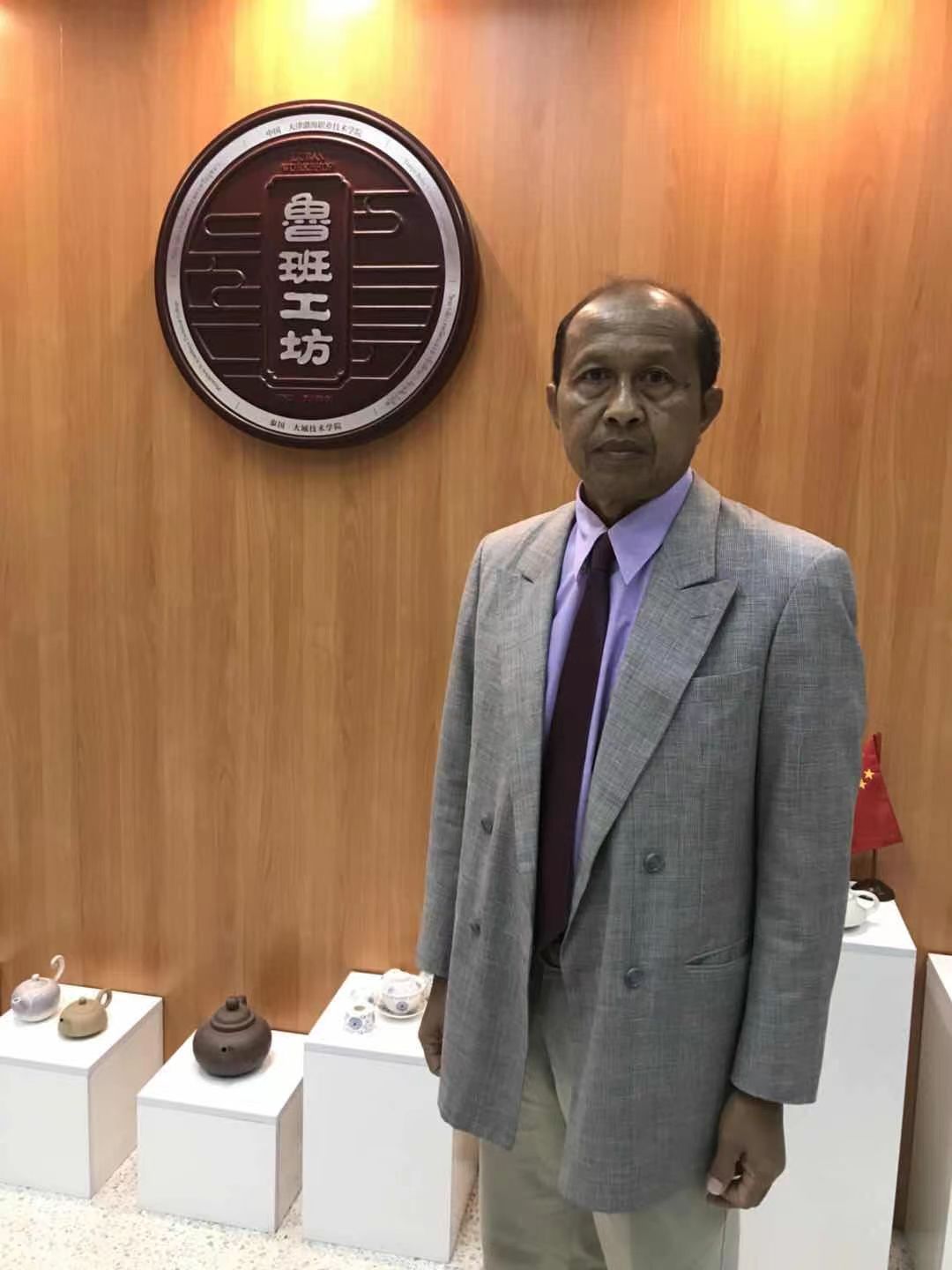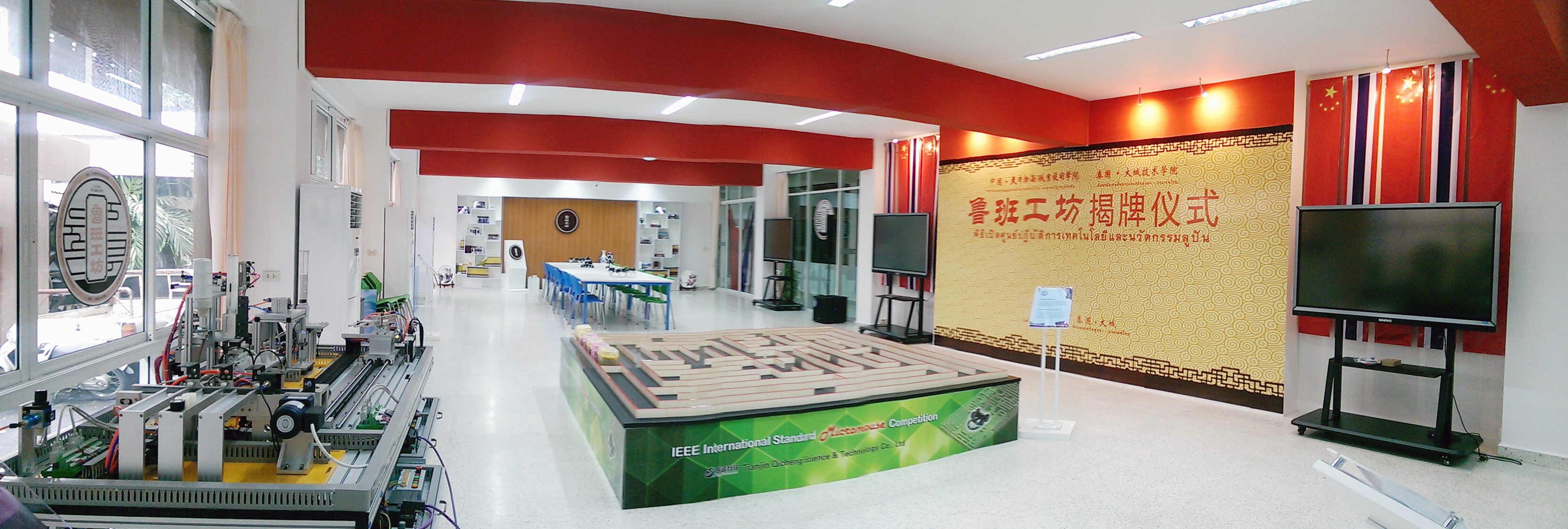Putting Education Before Investment: Luban Workshop Empowers Thai Youth
By?BI?Weizi
Jarun Youbrum, director of Phra Nakhon Si Ayutthaya Technical College, has been to China many times and engaged in several Sino-Thai education exchanges. What impressed him most is China puts education before investment, providing scholarships for students in Thailand to study in China, along with training for local instructors through the Luban Workshop platform. Youbrum recently spoke to Science and Technology Daily to share his thoughts on Luban Workshop and other related issues.

Jarun Youbrum, director of Phra Nakhon Si Ayutthaya Technical College. (COURTESY PHOTO)
S&T Daily: What is the Luban Workshop project in Thailand and how does it operate?
Jarun Youbrum: Tianjin Municipal Education Commission responded to the Chinese government's Belt and Road Initiative and built the very first Luban Workshop at the Phra Nakhon Si Ayutthaya Technical College in Thailand, with the help of Tianjin Bohai Vocational Technology College and Tianjin Railway Technical and Vocational College. The workshops train students in technical areas that include industrial sensors, robotics technologies, machinery equipment manufacturing, and high-speed rail technologies. To date, more than 1,000 Thai students have graduated from the workshop, and the facility has expanded greatly, providing an increasing number of programs.
Compared with traditional vocational training, what is unique about Luban Workshop?
Luban Workshop is a "future center" for modern technology learning, answering the question of the direction of national development, keeping up with the changes in the industrial world, meeting the needs of entrepreneurs and serving as a modern study and research base for teachers and students of vocational education schools in Thailand and other countries.
Moreover, integration of enterprise training into vocational education is also helpful. For example, Tianjin Shengna New Energy Vehicle Company has built a training center at Luban Workshop, and Tianjin Qicheng Weiye Technology Company has built a maze robot training center and organized a maze robot competition every year to train and improve students' skills in operating automated production equipment. Meanwhile, Beijing Xindalu Technology Company has built a practical training center to train students in Internet of Things technology application skills.

The Thailand Luban Workshop is the first of its kind outside China and launched in March 2016.?
(PHOTO: Tianjin Bohai Vocational Technical College)
Engineering courses are delivered in a project-oriented and innovative way at the Thai Luban Workshop, or under the EPIP model. Could you tell us how this works?
The teaching model of Engineering Practice Innovation Project (EPIP) and Luban Workshop have been founded on the educational thoughts of ancient and modern Chinese scholars, which emphasized the combination of hand and brain in skill training.
The five new programs opened at Luban Workshop are delivered through the EPIP teaching model at the Phra Nakhon Si Ayutthaya Technical College. The training is student centered? and promotes team work and cooperative training. It is flexible project-based training with continuous and formative assessment, enabling trainees to participate and win local and international talent/skill contest as part of their achievements.
This teaching model is quite effective in encouraging trainees' participation, interaction, group work, and creativity, so that they can have fun learning, solving engineering problems, designing their own machines in work teams, and creating their individual projects using the modern equipment.
The Railway Center of Luban Workshop was rolled out in 2018. How do you think this project can help facilitate Thailand's transportation development and improve people's livelihoods?
Two new majors, namely high-speed railway maintenance technologies and the automatic control of railway signals, were set up within the Railway Center of Luban Workshop. This was done in order to teach learners railway traffic skills, which is helpful to develop a regional-railway-traffic network that covers Thailand and neighboring southeast Asian countries. With the development of a regional railway network, the time people spend on transportation is largely reduced. Taking a high speed train is more cost-effective and time-saving for people to visit their families during holidays, compared with driving in their own private cars. More importantly, connecting to the rest of the world by high-speed rail can also have a positive impact on the development of Thailand.
What do you think of the Luban Workshop initiated by China along the BRI countries?
I think that China's policy of "putting education before investment" through the construction of 20 Luban workshops in 19 countries along the Belt and Road Initiative, is the best initiative I have ever seen. Through the establishment of Luban Workshop in Thailand, the friendship between China and Thailand has been strengthened. The youth are more willing to recognize Chinese products and technologies because of the systematic educational teaching they have received.
This article is also contributed by Tianjin Bohai Vocational Technical College.







